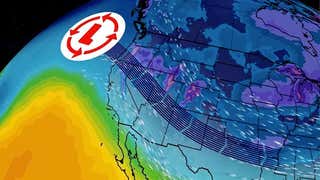


Researchers in Japan suspect silicon is the likely mystery element in the Earth's inner core.They believe silicon makes up about 5 percent of the inner core.
As a solution to one of the deepest secrets about our planet, Japanese scientists say silicon is likely the mysteryelement in the Earth's inner core.
It has been widely believed that the planet’s center is made up of about 85 percent iron, 10 percent nickel and the remaining 5 percent , according to AFP. Now, Tohoku University geologist Eiji Ohtani and his research team say silicon is the most probable candidate.
Silicon has long been a contender for the inner core’s missing element due to its properties, such as , Business Insider reported.
"We believe that silicon is a major element –about 5 percent [of the Earth's inner core] by weight could be silicon ," Ohtani told BBC News.
The scientists reached their conclusion by taking iron-nickel alloys mixed with silicon and exposing them to the kinds of high temperatures and pressures found in the Earth’s inner core, AFP also reported. The data from their mixed materialpaired with X-rays from matched seismic data taken from the inner core.
(MORE: )
Ohtani told AFP that this new discovery helps researchers understand whether the planet’s surface was rich in oxygen in its early formation stages, as oxygen is another potential candidate for the mystery element.
Some researchers believe that if Earth’s inner core is made of silicon, then the rest of the planet must have been relatively oxygen-rich when it formed. This is because theoxygen that they believe existed when Earth formed wasn’t confined to the inner core. However, if oxygen is the mystery element,the rest of the planet was oxygen-deficient when it formed.
Ohtani doesn’t believe oxygen currently exists in the inner core, as it would be difficult for it to coexist with silicon.
"But it doesn't necessarily mean the rest of the planet was oxygen-rich because there is a possibility that oxygen did not exist as an element of the Earth at its formation in the first place," he told AFP.
"In a way, these two options are real alternatives that depend a lot on the conditions prevailing when Earth's core first began to form," University of Cambridge professor Simon Redfern, who did not participate in the study, told BBC. "The most recent results add to our understanding, but I suspect that they are by no means the last word on the story."
Ohtani introduced his team's findings in San Francisco at .
MORE ON WEATHER.COM: Earth as Art




